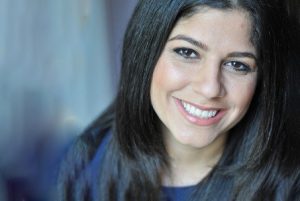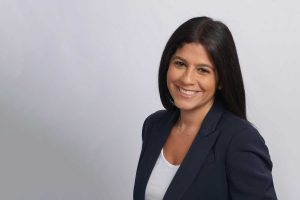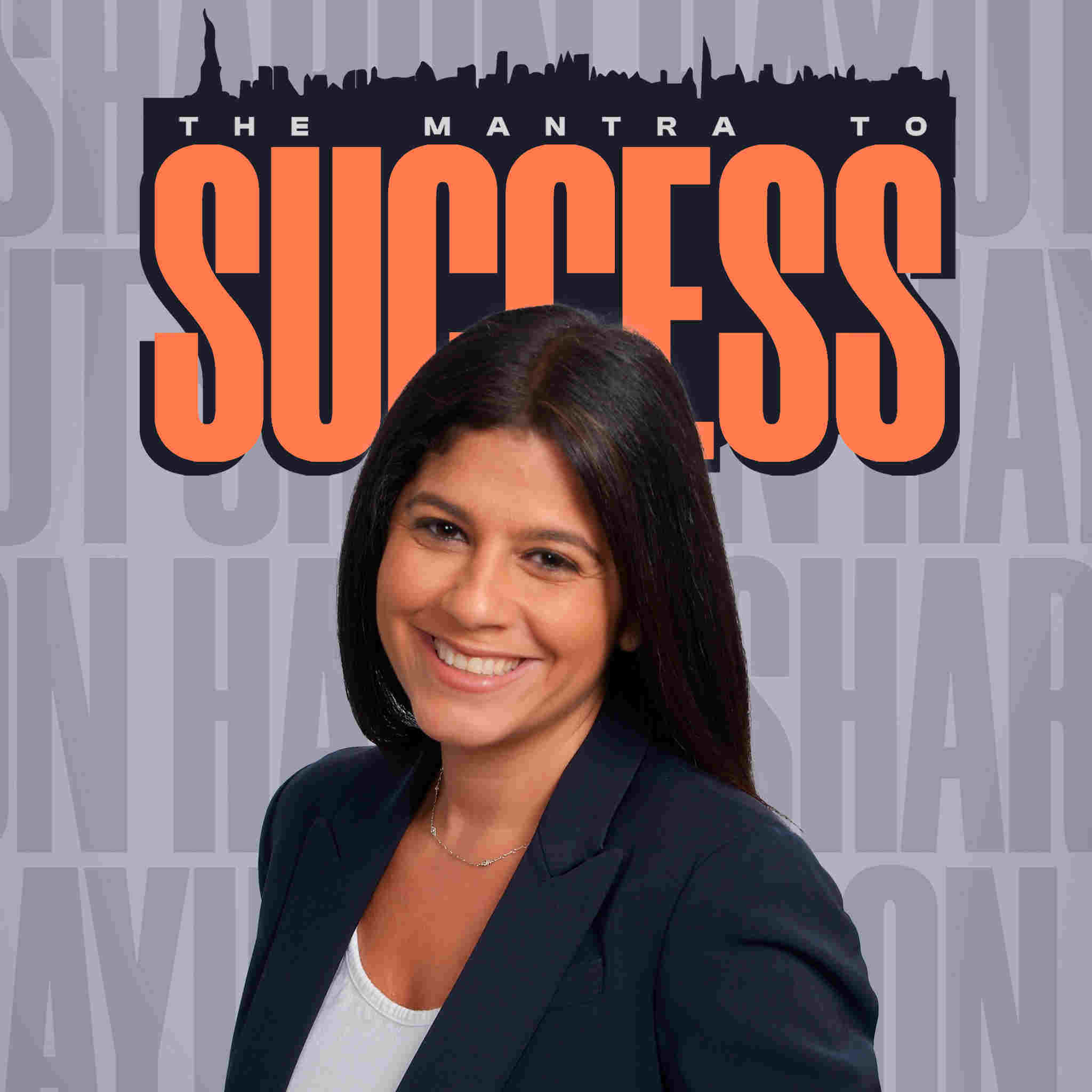CATEGORIES
Financial Confidence | People We Admire | Women EmpowermentOverview:
- Sharon Hayut, CFP®, CDFA®: empowering women, pioneering finance, and unlocking networking success mantra.
- Helping others achieve their goals is an important source of professional satisfaction.
- Women may face more challenges than men to build a career, but they also count with important assets.
- Finance independence can be achieved through simple but solid strategies.
- Education is the most powerful tool we have for empowerment.
1. Can you talk about your childhood and the impact it’s had or how it shaped you?
I grew up in New York. My parents are from Israel. They were hardworking people who really shaped my path. My dad went to work before I woke up and came home after I was asleep. My mom became a special educator, and she would bring home students who didn’t have family for dinners and to spend the weekend. That taught me to get to know and take care of everyone we come in contact with.
My parents eventually opened a business, and I used to help them write checks to pay the bills, which introduced me to finance at a very young age. It helped shape who I am professionally because my philosophy with clients is to treat them like family and to listen to who they are and what is important to them.

2. What part of finance really excites you and what do you think are the greatest experiences in the finance industry?
To make people happy by creating a plan and helping them achieve goals they didn’t really know how they could accomplish. For example, I have helped clients who inherited money and wanted to move across the country make a complete change in their lifestyle. I have helped others buy a new house before selling their previous home and figuring out a strategy to leverage their assets without causing any tax implications. Creating a path for my clients brings so much joy, and that is important to me.
3. If you could go back in time, what are some things that you would change or do differently?
When I first got into finance, I spent a lot of time spinning my wheels, figuring out how to be successful in this field. If I could go back in time, I’d like to have a more focused approach, to be able to spend more time on the things that actually worked and with family and friends, instead of just trying to be the best and the greatest in finance. I worked very hard, got to the office before most people, and went home after most.
Being a young woman in finance is quite difficult. It was easier for me to get a meeting but harder to close a prospect, because everyone would have lunch, or meet or talk, but they wouldn’t necessarily sign the paperwork. For a male, maybe it took three meetings, whereas it would take eight meetings for a female.
I felt I needed to be smarter, faster, brighter, and more immersed than the next person to succeed. It was wonderful going through it, but as you get older and realize your time is your most valuable asset, you want to be able to own where you’re spending it rather than just being all over the place.
4. Could you share a bit about any mentors or role models you’ve had in your life, who influenced and inspired you to be the person that you are today?
When I started my career, I went into a financial-adviser training program for two weeks, where we spent day and night learning about finance. There was an older woman in my training program, an investment banker. My branch manager introduced me to her and she became a mentor to me. It was invaluable to have an experienced mentor who took me under her wing and showed me the ropes.
Having a mentor is super important; the ability to bounce ideas off of her and get her insight on different ways of either investing money or gathering assets was tremendously helpful. For a female in finance, the value of support from a female mentor in finance is immeasurable. On good days, we were able to celebrate together, and on bad days, I was able to cry on her shoulder.

5. How did you preserve your authentic leadership style and not just do what people expected?
I think women have superpowers because we are more emotionally connected than a lot of male counterparts and we can listen better. That’s an invaluable asset in finance and was a differentiator for me, both with my management team and with my clients.
As a young, hardworking female, being more knowledgeable and not conforming to the norm helped me. Once at a training camp, my manager called me into his office and said, “I got a report saying you’re uncoachable. You’re not conforming to what the firm wants you to do.” And I think that’s an asset because it makes you stand out and helps women become better advisers.
6. What are some ways you have found women to be more vulnerable in the process of divorce? What steps can women take to protect themselves and limit their vulnerabilities?
There’s a disparity between females and males in the finance world; the gap is closing but we’re not there yet. The most important thing is to make sure that women have the knowledge needed, because there are so many nuances among tax laws and assets—multiple things that you need to know and understand, so one must surround oneself with a group of advocates. I’m a certified divorce financial analyst, and I work with several attorneys to look through different offers.
Understanding tax laws and being involved in one’s finances from day one is important—knowledge is power. I spend a lot of time trying to educate women, and it’s an important part of my journey to empower women.
7. What does a day in your life look like, and is there anything you do to keep the bigger picture in view?
I wake up to see the faces of my two kids, and that reminds me of why I go to work every day. I waited a long time to have children because I wanted to make sure that I could provide for them, to establish myself in a career, have a good life, and then bring them up. I think my long-term goal is to be able to educate them, send them to college, see them get married, and provide them with a wonderful life. That’s pretty much why I wake up in the morning, why I’m here.
Most days I’m generally on the phone talking to clients, taking updates and making sure they’re okay because our job is to know if anything has changed. I also watch the stock market. Knowledge is key, so I do a lot of research with various institutions to get perspective from not just one entity, but from everybody on the street. It is important to create your own narrative.
8. What advice would you give to young women who are interested in starting a career in finance while being young moms?
Trying to juggle being a young mom and educating yourself is incredibly difficult. I’ve never had more respect for women than after having children, working women in particular. It’s important to take a step back and see what’s most important to your kids.
My children love to see me early in the morning, helping them get dressed and dropping them off at school. So my focus has always been on making sure I’m there for my kids in the mornings, and I sometimes stay later at work. Figuring out what works for your family, carving out time for them and for yourself, making sure that you’re taking care of yourself and your mental health—these are all essential.
9. How can organizations create a work culture that retains young mothers?
It’s challenging for anybody to get in a position where they are successful and still have time to balance their home time, but it is more challenging for mothers because mothers have the role of taking care of the home and their family. I also think we feel an urge to be home and guilt if we are not. Flexibility is necessary.
The COVID pandemic and lockdown proved that we can get our jobs done when they need to be done on our own schedules. We don’t need to be tied to the norm of nine-to-five jobs. I think companies need to adapt to that. And there also needs to be some sort of partnership between an employer and a mom so both can figure out what works for each other.
10. As we move to a more inclusive world, what would you say has been the impact of ESG in the finance industry? Is there more work to be done?
I think there is still a lot more work to be done, but I think we are closer than we were ten years ago. You see all these firms creating inclusivity-related roles and that’s great, but I think it’s more important how programs are carried out in the workplace. It’s about what you actually do on the ground, how are we translating inclusivity into reality—that’s where the work is.
It’s going to take a long time and there are conflicting emotions surrounding it all. I think education is the most powerful tool we have: Educating people about each other’s differences and letting people be who they are. That’s how change will eventually happen.
Women particularly have to become more fearless and take more risks. The less afraid we are, the more empowered we will be. We need confidence and that only comes from education. That’s my thing: I want to be fearless, I want to be confident, and I want to be educated. With those three things you can take on the world.

11. What’s next for you? What are your goals for the coming years?
My goals are to keep growing my business and to take care of my home and my family. Also, I’m involved in an educational program where we educate women about finance in women’s shelters in New York City. I’d like to take that on the road, maybe across the country. I think it’s super important to get these women out of the situations they are stuck in, although it’s challenging. I’d like to focus on that.
At the same time, I want to grow my business, maybe opening a family office and becoming chief of it. But I’m pretty content where I am at the moment. If I can keep doing what I’m doing, there’s nothing better than putting smiles on clients’ faces and helping them reach their goals. I just want to be able to balance my professional life with time spent on my kids, watching them grow up.
12. What advice do you have for young women trying to grow financially both at the personal and professional level?
I always talk about the bucketing strategy, which is easy to understand but also very useful. You need to create buckets for yourself according to your needs. I think everyone should start with an emergency-fund bucket, but after that some people will have a “buy a house” bucket, others will have a “pay for a vacation” bucket, some others will have a “buy a car” bucket … Everyone’s buckets will look different. If you can figure out what percentage of your income, after your expenses, you can put in each bucket, that will help you get where you want to go.
The other thing I would say is network. Networking has been an invaluable tool for how I built my business. That’s how I got my clients: I went out and met people at charity events, at restaurants, at functions, everywhere—I even went to poker games to meet people.
Networking is one of the greatest ways to build a business, but if you go to a networking event you know that everyone there has an agenda. When I go to a game or a party, nobody has an agenda except for me.
Conclusion:
While thriving professionally may not be an easy road, especially for women, persistence, education, and self-care will take you anywhere you want to be. Sharon Hayut reinforces that financial education is an essential part of that process.



